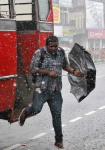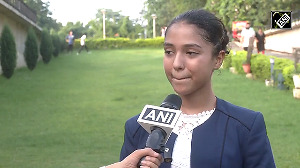Survivours and families of the victims of 2007's Virginia Tech shooting, in which 32 people including two Indians were killed, have reached a settlement worth more than $11 million with the US state, their lawyers said.
The agreement includes "financial compensation, health benefits and non-monetary assistance for surviving family members and victims of the April 16, 2007, massacre at Virginia Tech," according to a statement released by lawyers representing some of the families.
The finer details have not been released because the agreement has not been finalised.
The office of Virginia Governor Tim Kaine also released a statement saying the state's proposal "has now been accepted by a substantial majority of the victims and victims' families."
Kaine has also maintained that "it's a very positive thing" to reach an agreement before the first anniversary of the shootings, but insisted the "timing is much less important than trying to find some sort of agreement."
The agreement comes ahead of the first anniversary of incident in which 32 people, including Indian-born 51-year-old professor of civil and environmental engineering G V Loganathan and 26-year-old graduate student Minal Panchal, were killed by a mentally disturbed student Seung-Hui Cho.
Cho also wounded two dozen others at Virginia Tech before committing suicide.
"On April 16, 2007, an unthinkable tragedy took place on the campus of Virginia Tech," Kaine said in the statement.
According to an earlier version, the agreement would pay $100,000 to the representatives of each of the 32 people gunned down and another $800,000 would be made available to those injured with a maximum of $100,000.
What is being pointed out is that Virginia's legal maximum when suing the state in cases of simple negligence is $100,000.
The online edition of The Roanoke Times quotes Adam Scales, a law professor at Washington and Lee University, saying that he was not surprised that an agreement was reached for the shooting victims and their families would have had a tough time prevailing in courts against the university given that the educational institution would have likely been protected by sovereign immunity.
Professor Scales was quoted as saying that proving anything beyond simple negligence would be very difficult.
"You typically have to show a very high departure from what would be reasonable care," Scales said.






